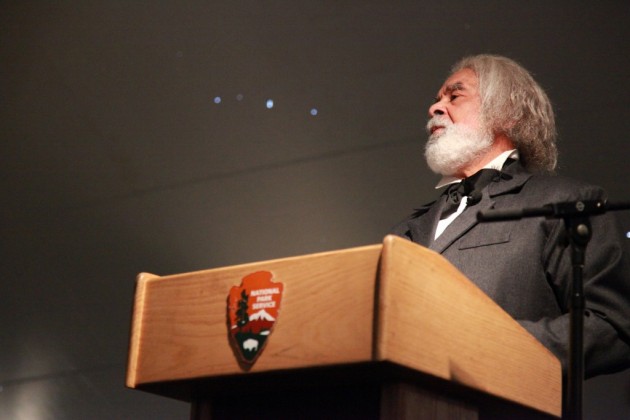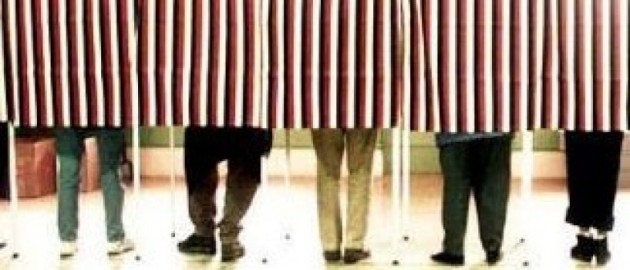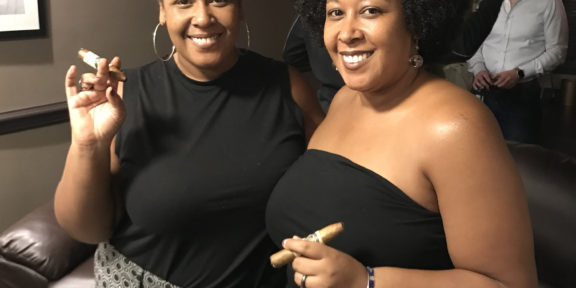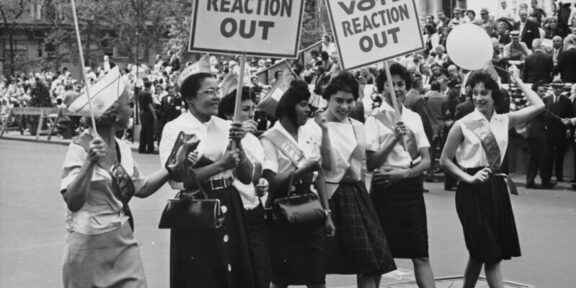D.C. Residents Debate ‘Being Hot’ at Forum
Snitching, or “being hot,” has been acontroversial subject plaguing urban communitiesnationwide. It is anunofficial code in many neighborhoods, encouragingpeople to not tell the police if they witnessed acrime. Otherwise, they face the possibility of being killed. “Stop Snitching” has become almost a nationwide phenomenon, with the slogan being put into rap music and on stop signs on shirts.Leaders and activists inWashington, D.C., discussed the controversy recently during a forum on “What’s Snitching and What’s Not” at the Blackburn Center atHoward University. A diverse panel included assistantpolice chief Diane Groomes, District attorney AlbertHerring, Temple professor March Lamont Hill,Roc-a-fella Records rapper Freeway and Ron Johnson, aformer gang member from Compton, Calif., representingJim Brown’s Amer-I-Can program. Peaceaholics organized the forum as part of D.C. Atonement Week to facilitate adiscussion about when residents feel it isjustified and safe to tell the police about a crime,and to shed light on the true definition of being asnitch. “In my opinion, if you snitch to get out of you doingtime when you were doing something wrong, then that’snot right,” said Ronald Moten, co-founder ofPeaceaholics. “But if a white man does a drive-by ina black community, everyone would tell. If a black mandoes it, it could be in front of 1,000 people, andeveryone would turn their back.” However, the forum quickly turned into a heateddebate about several issues going on within Washington, D.C., such as the killing of14-year-old DeOnte Rawlings in Southeast by an off-dutypolice officer; mandatory sentence minimums, andthe disparity in punishment between crack and powdercocaine-related crimes. Panelists like Hill focused on issues that deterblack people from going to the police. “When whitepeople tell the police, there’s a reasonableexpectation that they will respond accordingly,” the Temple professor said. “Theyknow the police will respect their rights, and notplant evidence. Black people don’t have thatreasonable expectation.” Much of the crowd’s frustration was directed toAlbert Herring and Diane Groomes, seeking answers toproblems in the justice system. Audience membersdrilled Herring with questions about prosecutorialmisconduct and the arrest of many black men fornon-violent crimes. Herring’s answers defending thejustice system riled up audience members, garneringloud, deep sighs and smacked lips throughout the crowd. Groomes had to answer tough questions from audiencemembers about police seeming to protect newerCaucasian residents more than long-time blackresidents. “White folksmoved into a house in Anacostia and had two policeofficers protecting their house because a group ofblack men was hanging out on the corner,” complained WillieWilson, pastor of Union Temple Baptist Church. “It’s peoplein Southeast that’s been living there for 50 years andhaven’t had police protection.” Freeway lightened the mood of the event by going on arant to promote his album. He defended the hip-hopcommunity by saying “whether you decide to tell thepolice or not is a personal choice.” “It is between youand God,” he said. “It is about how you raise your kids.” Some audience members felt the discussion became alittle unfocused. “A lot of people got off topic,”said Ms. Nelson, a D.C. public school teacher. “Theydidn’t engage the youth. The point was obscured.” A segment of the forum had a unnamed woman in witnessprotection, speaking from a microphone in anotherroom about her experience of witnessing acrime and notifying the police. “My brother wasshot and killed in broad daylight by nine people, andnobody said anything,” she explained. “So when I saw a crime, I didn’twant someone’s sister, brother or mother to feellike I did.” Ron Johnson, who wasshot 11 times by different people, didn’t tellthe police even though he knew who did it. “I didn’twant anyone to get revenge on me for something someoneelse did to me,” he said. Johnson stressed that what goesaround comes around, especially for the people whoshot him. “One person is paralyzed for life, one diedof HIV after spending 20 years in the pen and theother is locked up.” Peaceaholics co-founder Jauhar Abraham was pleasedwith the turnout and success of the event. “This was part ofour atonement week, Abraham said. “It is one of the vows we made atthe Million Man March to go back into ourcommunities.” He welcomed the intense debate between panelists andaudience members. “We are getting the discussionstarted,” he added. “The citizens have responsibilities, butthe government has responsibilities, too.” Abrahammentioned the closing of an apartment complex atRobinson Place Southeast, because of the highcrime rate. “Two thousand people are losing their housingvouchers because 20 to 25 people control the block,” he said. “Nowthat’s being hot.”






